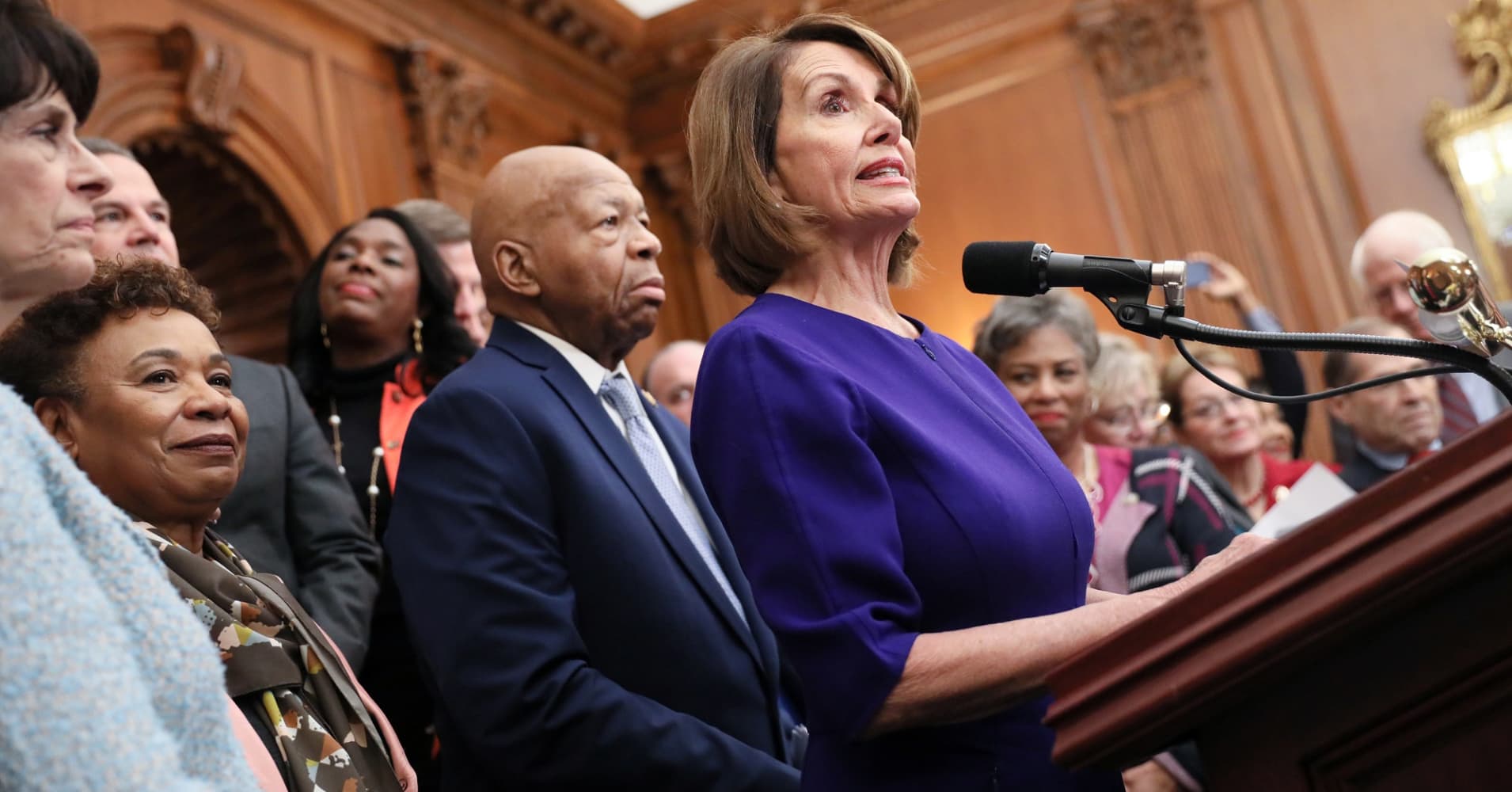
Ever wish you got the day off for Election Day? If lawmakers get their wish, that might just happen.
The first bill House Democrats introduced this January included a wide range of anti-corruption measures—and a proposal to make Election Day a national holiday.
While more than two-thirds of Americans polled by Pew Research have said they'd support such a measure, not everyone is a fan.
Senate Majority Leader Mitch McConnell called the proposal a "power grab" by Democrats.
"Just what America needs, another paid holiday and a bunch of government workers being paid to go out and work, I assume [for] our colleagues on the other side — on their campaigns," he said on the Senate floor on January 30th.
The proposal is just the latest of many over the years to turn Election day into a National holiday. The bill would change a practice that dates back to a law passed under President John Tyler in 1845, one that established a firm tradition: Voting would occur on a Tuesday and in November.
"Be it enacted by the Senate and House of Representatives of the United States of America and in Congress assembled, that the electors of the President and Vice President shall be appointed in each state on the Tuesday next after the first Monday in the month of November," reads the statute.
At the time, the U.S. was mostly agrarian and legislators believed that voting on Tuesday would allow rural voters to attend religious services while still having time to travel to the polls. Voting in November also ensured that the election wouldn't interfere with seasonal farming schedules.
Election Day was also often considered an unofficial holiday. "Voters could expect to be treated with barbecue, cake and rum punch. George Washington provided 158 gallons of alcohol to voters during one Virginia election," writes Holly Jackson associate professor at the University of Massachusetts, Boston for the Washington Post. "From 1840 to 1896, about 80 percent of eligible voters showed up for elections."
To be sure, voting a century ago was a privilege enjoyed by only a fraction of the country, and the voting population was comprised mostly of white men. In the near century since, voting rights have expanded to most citizens 18 and older who meet their state's residency requirements.
Meanwhile, American's lives have also changed significantly. In the 1840s, farmers comprised roughly 69 percent of the labor force. Today, less than 2 percent of the U.S. labor force is employed in the agriculture industry.
These shifts mean the traditional voting practices don't work for many Americans. For instance, weekday voting is disproportionately difficult for single parents and those who work multiple jobs, according to those who support making Election Day a national holiday.
The current system also creates obstacles for emergency workers and low-income people, other experts say.
Additionally, non-voters cite scheduling conflicts and inconvenient polling locations among the top reasons they stay away from the ballot box.
Currently, federal law does not require employers to allow their workers time off to vote. Voter protections for taking time off for work do exist, but they vary from state to state.
Several states including New York, Delaware, and Hawaii do offer state holidays for Election Day but the specifics of these holidays vary and largely apply to public workers.
Such complications add to the hassles that drive down voter turnout. Only around half of America's voting-age population cast a ballot in the last presidential election, a number that hasn't changed unchanged significantly for decades, according to Pew Research.
That said, it's not known if a federal holiday (or even a shift to weekend voting) would impact turnout. While some believe making Election Day a national holiday could transform voting culture in the U.S., more research is needed to truly understand the impact, as Kristen Clarke, president and executive director of the Lawyers Committee for Civil Rights Under Law recently told USA Today.
Still, supporters say, any change that removes obstacles from low-income voters and others is a step in the right direction.
As Congresswoman Anna Eshoo tells CNBC Make It, "Congress should do everything it can to make it easier for Americans to vote, not harder. That's what this bill does."
Like this story? Subscribe to CNBC Make It on YouTube!
Don't miss:
via IFTTT
No comments:
Post a Comment